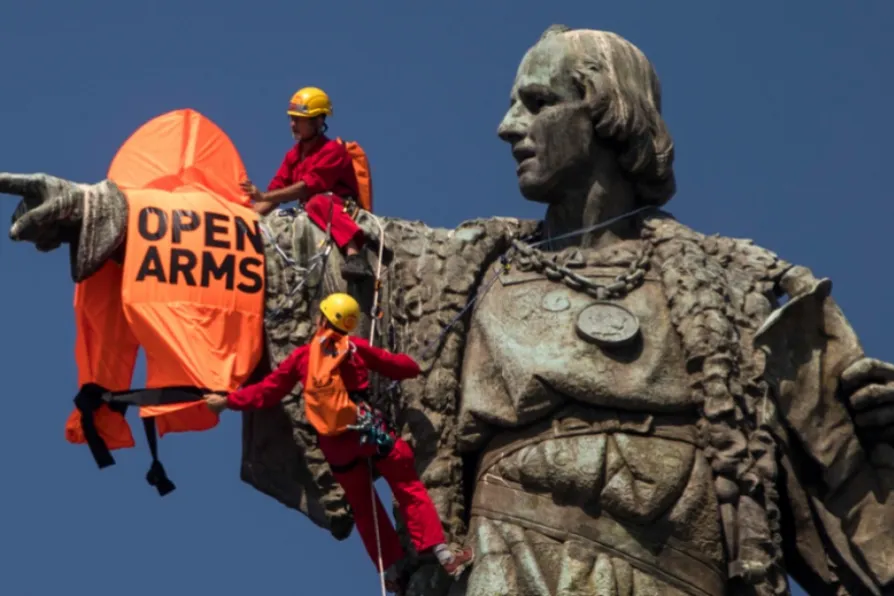ROX MIDDLETON, LIAM SHAW and MIRIAM GAUNTLETT delve into the technicalities of famine classification to reveal a worldview in tatters

 Two activists climb on top of the 197-feet monument Christopher Columbus tower after placing a vest with the words ‘Open Arms’ on the statue in Barcelona, Spain. Activists in Barcelona have dressed in an orange life-vest a statue of 15th-century explorer Christopher Columbus to turn attention to the loss of life of migrants and refugees in the Mediterranean Sea
Two activists climb on top of the 197-feet monument Christopher Columbus tower after placing a vest with the words ‘Open Arms’ on the statue in Barcelona, Spain. Activists in Barcelona have dressed in an orange life-vest a statue of 15th-century explorer Christopher Columbus to turn attention to the loss of life of migrants and refugees in the Mediterranean Sea
A RECENT European Council summit in Brussels was meant to articulate a united policy on the burgeoning refugees and migrant crisis.
Instead, it served to highlight the bitter divisions among various European countries. Considering the gravity of the matter, Europe’s self-serving policies are set to worsen an already tragic situation.
True, several European leaders, including Italy’s Prime Minister Giuseppe Conte, went home to speak triumphantly of a “great victory,” achieved through a supposedly united European position.
Italy’s Interior Minister Matteo Salvini used more derogatory terms in explaining his country’s new policy on refugees and migrants.
“They will only see Italy on a postcard,” he said, referring to refugees who have been arriving in Italy with the help of humanitarian rescue boats.
The first of these boats, carrying over 600 refugees and economic migrants, the Aquarius, was sent back on June 11, followed by another, carrying over 200 refugees.

With foreign media banned from Gaza, Palestinians themselves have reversed most of zionism’s century-long propaganda gains in just two years — this is why Israel has killed 270 journalists since October 2023, explains RAMZY BAROUD

Gaza’s collective sumud has proven more powerful than one of the world’s best-equipped militaries, but the change in international attitudes isn’t happening fast enough to save a starving population from Western-backed genocide, argues RAMZY BAROUD

RAMZY BAROUD asks why it has taken so long for even left-wing voices in the West to call out what Israel is doing

RAMZY BAROUD explains why the world can no longer ignore Palestine














